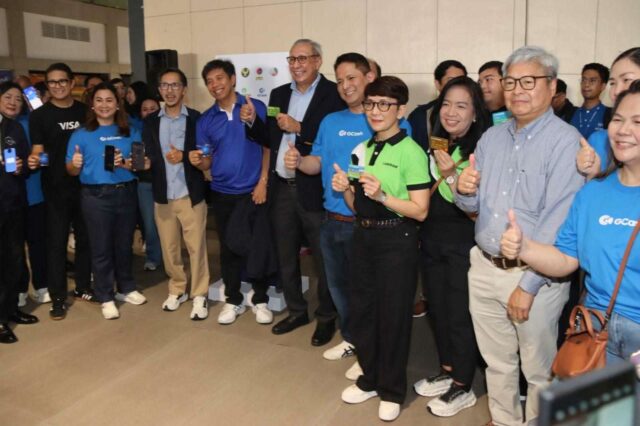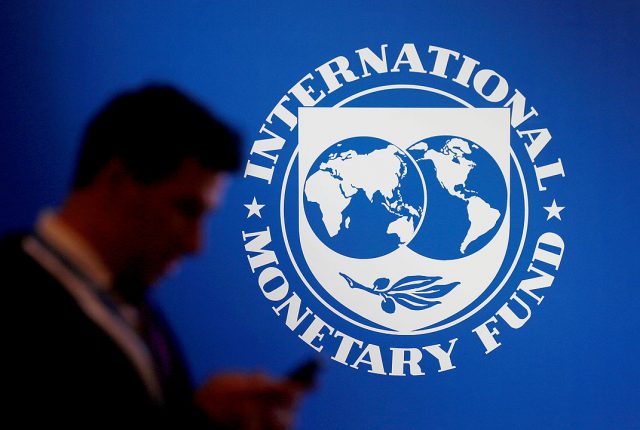LANDBANK powers cashless fare payments in MRT-3

LANDBANK reinforced its role as a key enabler of convenient and cashless commuting with the successful pilot launch of the Department of Transportation’s (DoTr) Automated Fare Collection System (AFCS) for MRT-3 on July 25.
Under the AFCS, MRT-3 passengers can now experience seamless commuting by simply tapping their debit, credit, or prepaid Europay, Mastercard, and Visa (EMV) cards at upgraded turnstiles. This offers a faster and more convenient alternative to single-journey tickets and stored-value cards, marking a shift towards secure, seamless, and real-time transit payments.
The live demonstration was led by Transportation Secretary Vince B. Dizon, Bangko Sentral ng Pilipinas (BSP) Monetary Board Member Walter C. Wassmer and Deputy Governor Mamerto E. Tangonan, Department of Information and Communications Technology (DICT) Secretary Henry Rhoel R. Aguda, Mynt President and CEO Martha Sazon, Globe Exchange, Inc. (GXI) President and CEO Ren-ren Reyes, LANDBANK President and CEO Lynette V. Ortiz, VISA Country Manager Jeffrey Navarro, RCBC President and CEO Reginald Cariaso, and RCBC Chief Innovation and Inclusion Officer EVP Lito Villanueva, among other key stakeholders.
“We are proud to enable smart, secure, and contactless payments for daily commuters and to support the government’s push for digital transport reform. At LANDBANK, we are always ready to partner with both public and private players to scale interoperable payment solutions that improve everyday lives,” said LANDBANK President and CEO Lynette V. Ortiz.
As part of the collaboration project, GCash operator GXI deployed and maintains the POS terminals and transit system at MRT-3 turnstiles, handling fare computation, reporting, and commuter support to ensure smooth card-based transactions.
Meanwhile, LANDBANK serves as the sole acquiring bank and transit payment gateway integrator, ensuring that payments made using EMV cards are authorized, processed, and settled directly into DoTr’s account.
LANDBANK’s Transit Payment Solution supports fare payments across different transport modes through an integrated system of validators, a central payment gateway, and settlement services. It works for EMV and other dedicated cards and can connect with other transit providers through secure digital links to support a truly interoperable nationwide transit experience.
The AFCS forms part of the National Government’s broader agenda to digitize public services, aligned with Executive Order No. 170 and the BSP’s Digital Payments Transformation Roadmap.
With this initiative, LANDBANK stands ready to help build a fully modernized and inclusive public transport ecosystem, powered by financial technology and strong inter-agency and public sector collaboration.
Spotlight is BusinessWorld’s sponsored section that allows advertisers to amplify their brand and connect with BusinessWorld’s audience by publishing their stories on the BusinessWorld Web site. For more information, send an email to online@bworldonline.com.
Join us on Viber at https://bit.ly/3hv6bLA to get more updates and subscribe to BusinessWorld’s titles and get exclusive content through www.bworld-x.com.











 Attendees can also look forward to an enriching program of seminars and forums, including:
Attendees can also look forward to an enriching program of seminars and forums, including: Kenneth Lim, PFA director for Western Visayas, emphasized Cebu’s strategic importance: “
Kenneth Lim, PFA director for Western Visayas, emphasized Cebu’s strategic importance: “ This event is not possible without the help and support of the following partners: Provincial Government of Cebu, City Government of Cebu, DTI Region VII, OWWA Region VII, Cebu City Chamber of Commerce, Mandaue Chamber of Commerce, SM Supermalls, PLDT Enterprise, GCash, Carrier, BPI, Grainsmart Café, UnionBank, Chong’s Chicken Inasal; Golden Roast Chicken Inasal; Phoenix LPG; Converge; Villa Tuna; Mayet Dela Rosa Fine Jewelry; Francorp; U-Franchise and Qualiplus.
This event is not possible without the help and support of the following partners: Provincial Government of Cebu, City Government of Cebu, DTI Region VII, OWWA Region VII, Cebu City Chamber of Commerce, Mandaue Chamber of Commerce, SM Supermalls, PLDT Enterprise, GCash, Carrier, BPI, Grainsmart Café, UnionBank, Chong’s Chicken Inasal; Golden Roast Chicken Inasal; Phoenix LPG; Converge; Villa Tuna; Mayet Dela Rosa Fine Jewelry; Francorp; U-Franchise and Qualiplus.



